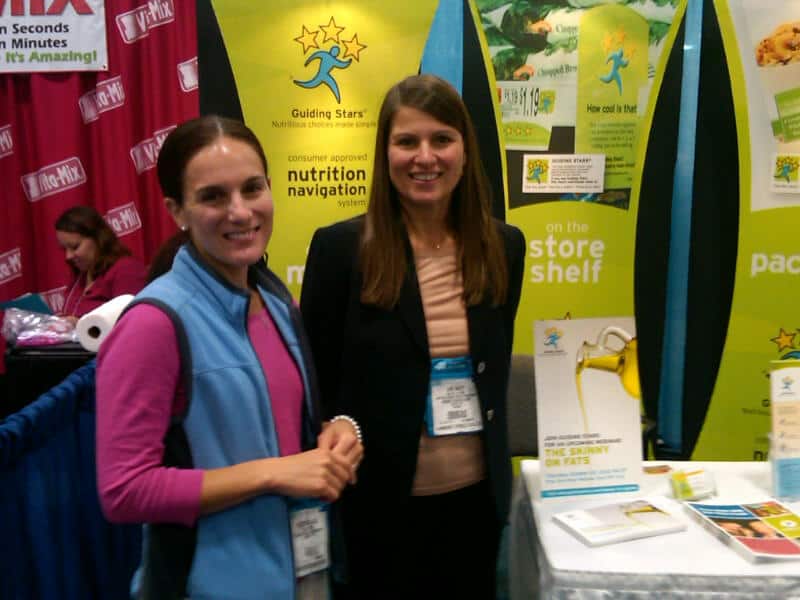I’ve recently returned from the annual Food and Nutrition Conference for the American Dietetic Association (ADA). This tremendous conference regularly attracts 6,000 dietitians from across the country…all to one place…and very often with several thousand in one room. Yes, that’s a lot of dietitians.
I had the unique pleasure of attending not just as a dietitian, but also as a consultant to Guiding Stars, which gave me the opportunity to introduce our guidance system to many people that didn’t previously know it existed (most who then wished there was a grocery store near them that had it available).

ADA-2011-Alli-and-Lori.jpg Of course, I also attended several lectures and discussions on nutrition. Naturally, many programs focused on our current issues: what do to about childhood obesity, how to help parents help their families, where to go from here in the fight against rising rates of diabetes and heart disease. At the risk of sounding too cynical, I have to say that many of these discussions ended in something like, “as you can see a long road lies ahead” or “there is still a lot of work to do.”
I’m wondering what I expected to hear. Maybe I thought there would be a ground-breaking study that gave me the tools to better help people make the changes they need to? Perhaps I expected that in other parts of the country they had figured something out that just hadn’t made it East to where I live and work? Unfortunately, I instead learned that the same problems remain…they are just getting more expensive to prevent and manage. Needless to say, these talks were not uplifting at all.
Sadly, the problems are bigger than just nutrition and the need to educate people on how to eat well. Along with the many challenges that face our country is a discrepancy in how individuals translate health messages into action and more importantly, if they understand these messages in the first place. Next week (starting October 16th), we recognize National Health Education Week. The theme this year is Health Literacy: Gateway to Improving the Public’s Health. This title recognizes the fact that many people still don’t understand how to implement the advice that they receive from their physicians, pharmacists and other health professionals, including dietitians. It reminds us that our health messages are only effective if they can be translated into action by those who need help the most. It also highlights that with the limited resources we have to educate our population, we must do it effectively in order to see progress on major health issues. This message echoes those I heard at the conference.
So what did I take home with me from the ADA conference (aside from a bunch of magnets, pens and other free stuff from exhibitors)? I brought home the motivation to just keep trying to help people, to continue to translate science into words that people can use to make change. I was reminded that while we do have a very long way to go, that there are many other people, just like me that are giving it their all every day. I learned that even though an underfunded program in some part of America is only able to help fifteen families instead of fifteen hundred, at least those children are learning how to change their habits so that they may grow to create a healthier population tomorrow. Most importantly, I learned that every step matters because it is a step forward and that even though some days it feels like I am not reaching enough people, I know that there are at least 5,999 other dietitians doing the same thing.